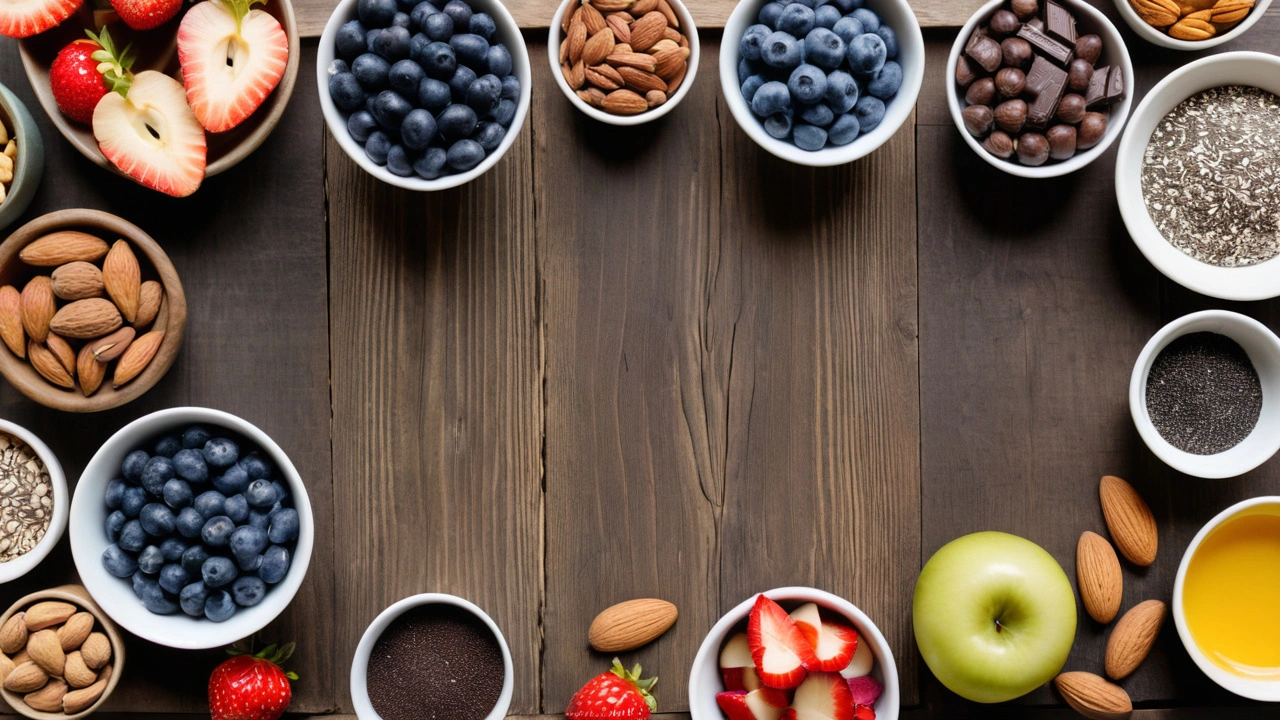Nutrient-Rich Eating: Simple Moves That Make a Big Difference
Swap empty calories for nutrient-rich choices and you'll feel fuller, have more energy, and recover faster after workouts. Start by thinking of every meal as an opportunity to pack in vitamins, minerals, protein, fiber, and healthy fats instead of just calories.
Focus on whole foods you recognize: leafy greens, beans, eggs, oily fish, whole grains, nuts, seeds, and colorful veggies. These give more nutrition per bite than processed snacks. Want a quick rule? If a food has very few ingredients on the label, it usually wins.
Practical swaps and plate ideas
Breakfast: trade sugary cereal for a bowl of oats with Greek yogurt, berries, and a spoonful of flax or chia. That gives protein, fiber, omega-3s, and antioxidants in one bowl. For kids, try the kid-friendly breakfast ideas like whole-grain pancakes blended with banana and a little nut butter—same nutrients, more fun for little hands.
Lunch & dinner: build plates around a source of protein (chicken, tofu, lentils), a whole grain (brown rice, quinoa), and at least two vegetables. Add a small handful of nuts or a drizzle of olive oil for healthy fat. A quick formula: half the plate veggies, one quarter protein, one quarter grain or starchy veg.
Snacks and drinks: swap chips for carrot sticks with hummus or an apple with nut butter. Health juices can be a smart post-workout pick when they include protein or a dairy/non-dairy blend—plain fruit juice alone lacks protein and fiber, so pair or blend wisely.
Shopping, storage, and small habits that stick
Shop the perimeter of the store first—fresh produce, dairy, meat, and whole grains—then add a few frozen veggies and fruits for emergencies. Frozen produce keeps nutrients longer than tired fresh produce and makes healthy cooking faster.
Prep once, eat well all week: roast a tray of mixed vegetables, cook a batch of beans or lentils, and hard-boil eggs. Toss them into salads, bowls, or wraps for quick nutrient-rich meals. Keep single-serve bags of mixed nuts or cut veggies within reach to avoid vending machine snacks.
Think about timing: nutrient needs change with activity. After a workout, aim for carbs plus protein—health juices with added protein or a simple smoothie with fruit and Greek yogurt work well. For gut health, include fermented foods like yogurt, kefir, or small servings of sauerkraut; they help digestion and overall wellness.
Small changes add up. Pick three swaps this week—one breakfast, one snack, and one cooking habit—and stick to them. You don’t need a perfect diet to get real benefits; you just need more nutrient-rich choices where it counts.

Boost Your Brainpower with These Nutrient-Rich Snacks
This article explores healthy snacks that can enhance cognitive functions and brain health. It includes delicious and nutritious options to keep your mind sharp throughout the day. Learn about how fruits, nuts, seeds, and other snacks can contribute to better focus, memory, and overall brain performance.
Read More